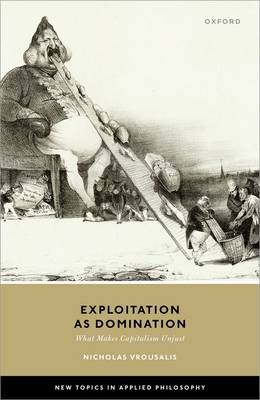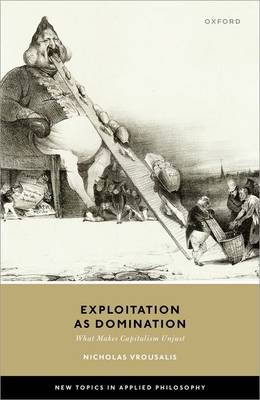
- Afhalen na 1 uur in een winkel met voorraad
- Gratis thuislevering in België vanaf € 30
- Ruim aanbod met 7 miljoen producten
- Afhalen na 1 uur in een winkel met voorraad
- Gratis thuislevering in België vanaf € 30
- Ruim aanbod met 7 miljoen producten
Zoeken
Omschrijving
This is an open access title available under the terms of a CC BY-NC-ND 4.0 International license. It is offered as a free PDF download from OUP and selected open access locations. Exploitation is a globally pervasive phenomenon. Slavery, serfdom, and the patriarchy are part of its lineage. Temporary and sex workers, commercial surrogacy, precarious labour contracts, sweatshops, and markets in blood, vaccines or human organs, are some contemporary manifestations of exploitation. What makes these exploitative transactions unjust? And is capitalism inherently exploitative? This book offers answers to these two questions. Nicholas Vrousalis argues that exploitation is a form of domination, self-enrichment through the domination of others. On the domination view, exploitation complaints are not, fundamentally, about harm, coercion or unfairness. Rather, they are about who serves whom and why. Exploitation, in a word, is a dividend of servitude: the dividend the powerful extract from the servitude of the vulnerable. Vrousalis claims that this servitude is inherent to capitalist relations between consenting adults whereby capital is monetary control over the labour capacity of others. It follows that capitalism, the mode of production where capital predominates, is an inherently unjust social structure.
Specificaties
Betrokkenen
- Auteur(s):
- Uitgeverij:
Inhoud
- Aantal bladzijden:
- 224
- Taal:
- Engels
- Reeks:
Eigenschappen
- Productcode (EAN):
- 9780192867698
- Verschijningsdatum:
- 28/02/2023
- Uitvoering:
- Hardcover
- Formaat:
- Genaaid
- Afmetingen:
- 163 mm x 229 mm
- Gewicht:
- 476 g

Alleen bij Standaard Boekhandel
+ 232 punten op je klantenkaart van Standaard Boekhandel
Beoordelingen
We publiceren alleen reviews die voldoen aan de voorwaarden voor reviews. Bekijk onze voorwaarden voor reviews.











